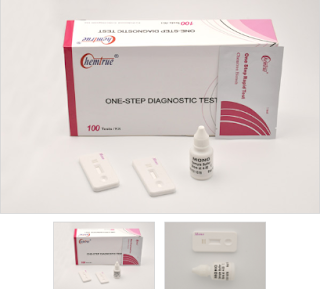Detection of Hepatitis C Virus
Detection of hepatitis c virus (HCV) infection includes serological detection and nucleic acid detection (NAT). The former includes HCV antibody (anti-hcv), core antigen detection, which includes qualitative/quantitative RNA detection and genotype/subtype detection. Anti -HCV detection is the most widely used HCV infection screening test, easy to operate. It takes less time and low cost, but it has a long window period, so it cannot distinguish between active infection and virus elimination, thus it is not suitable for people with immunodeficiency. HCV RNA is the direct evidence of viral infection. In the past, the detection sensitivity of qualitative RNA was relatively high, but with the maturity of real-time quantitative PCR technology, the detection sensitivity of quantitative PCR has been continuously improved, and the linear range has been continuously broadened, which is applicable to the monitoring of clinical antiviral treatment response, and is gradually replacing qualitative detection for screening of blood products. In recent years, HCV antigen detection and antigen antibody combination detection kits have been used for the screening and treatment monitoring of HCV infection, but their sensitivity is not as good as NAT. At present, the mainstream HCV genotyping reagents have a high coincidence rate in detecting genotypes, while the results of detection subtypes are quite different, which requires methodological improvement.
The HCV rapid test kit of our company is of good quality. Learn more about hcv test kit from chemtron biotech.
The HCV rapid test kit of our company is of good quality. Learn more about hcv test kit from chemtron biotech.


评论
发表评论